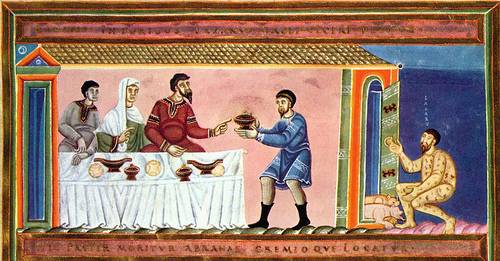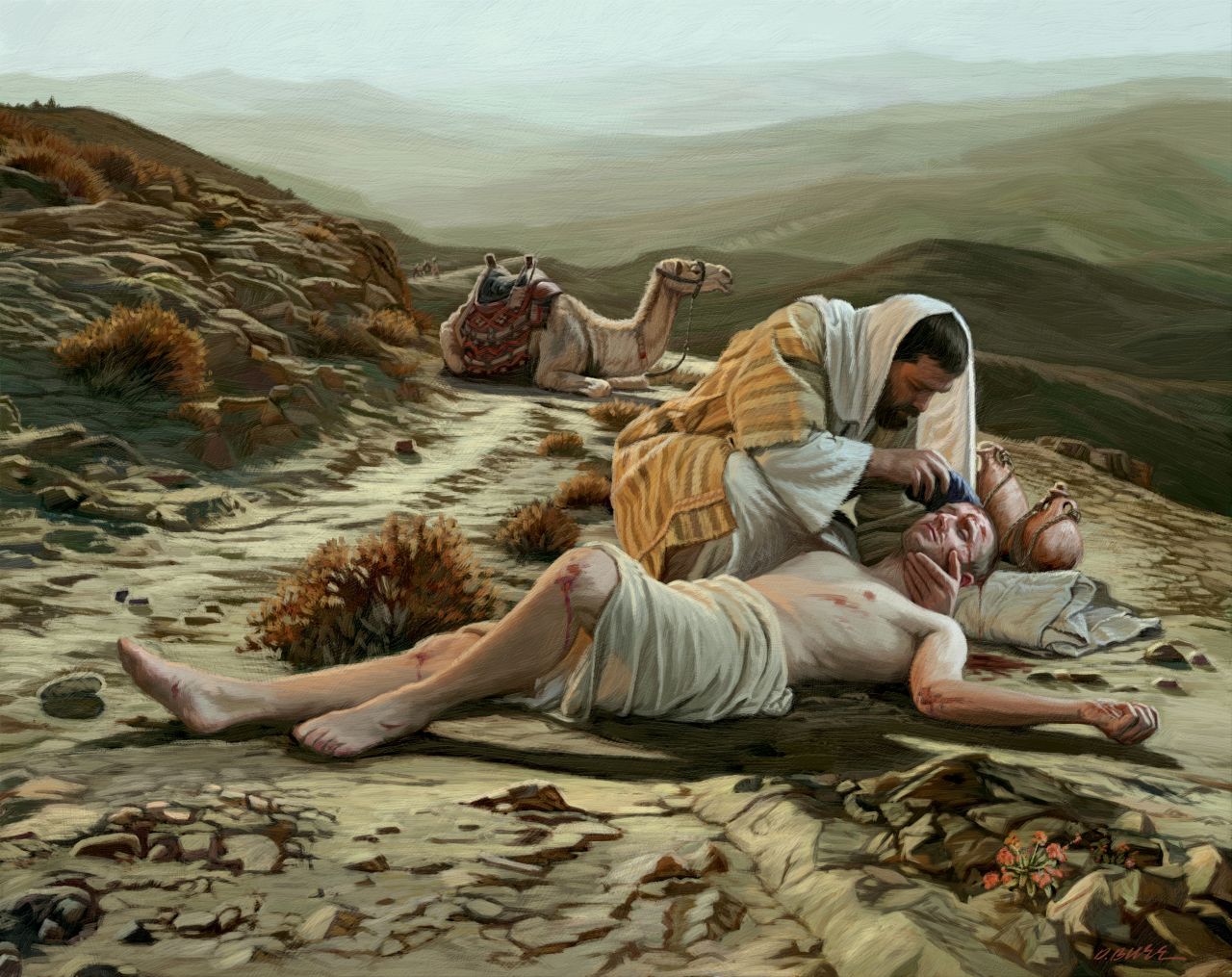.jpg) |
| Ebenezer Scrooge: "Are there not workhouses/" |
I fear my last post may have been too harsh o friend Xerxes, and may leave the impression that we are obliged to give all we have to the poor. Indeed, doesn’t Jesus even say that in the Bible?
Not so. We are not so obliged. There is a difference between what we have earned honestly or by devious means. What we have earned honestly, by providing a useful good or service, we have a right to. The Bible does say “the workman deserves his wages.”
One would hope that we would give what we can to help others, our neighbours, in dire need. As in the parable of the Good Samaritan. The church teaches that, if a man needs a loaf of bread to save his life, he has the right to that loaf of bread, whoever legally owns it. Michael Knowles gives the example of a beggar who shows up to your door, on the point of death. Don’t you have a duty to give whatever you reasonably can to save his life?
But then extend the principle to all the people starving in the world today. Don’t we then have the obligation to give what we have, until we ourselves are barely above starvation, if necessary, to help them?
There is a Confucian story of a king who heard the sacrificial ox loudly lament when it was on the way to being slaughtered. Moved by pity, the king ordered that ox returned, and another taken.
When I read this, I thought the distinction was purely sentimental, self-indulgent. An ox would be killed. How did it matter morally which one?
Perhaps I was wrong. It is ever wise to scoff at Confucian wisdom.
 |
| The rich man and Lazarus |
Given that, as Jesus says, “the poor will be always with you,” you cannot extend the principle of benevolence to all oxen, all beggars. Then it becomes an insoluble problem, and Xerxes is left obliged to spend all his time, money, and energy on some poor person somewhere. Some choose to do something like this—the Franciscans. But if we all did, society and civilization would end, as no one any longer would have children, or write novels, or compose songs, or teach, or build bridges.
It has to be that one beggar at your door; that one ox. It has to be the need you see around you. In the case of the Good Samaritan, the stranger he encounters in a ditch. For it is not that God is calling you to solve the problem of suffering in the world. That would even be presumptuous. That is God’s job, and God has his reasons for permitting poverty to endure. But if a beggar comes to your door in obvious need, that is Christ putting you to the test. Do you see him as a neighbour, or just another statistic? “I gave at the office.” “I pay taxes.” “Are there not workhouses?”
Perhaps this is why, in the Biblical tale of the rich man and Lazarus, Lazarus has a name. It otherwise looks like a parable--but in a parable, formulaically, no one has a name. They are, after all, only hypothetical people in a thought experiment. It may be important, for the story, that the rich man knows Lazarus as another human individual, not just a hypothetical, yet does not help. And so goes straight to hell.
Which rather justifies Xerxes with his hummingbird. He does not personally see the homeless in East Van. They did not quite appear to him. They may still be hypothetical.
The problem is with implicitly claiming virtue because of his tinkering with a hummingbird feeder. As though that justified him in the face of human poverty nearby. This is the context in which Jesus says, in the gospels, “give all you have to the poor.” It was in answer to a rich young man who wanted to be able to consider himself virtuous. Not that you must do this, but that you must do this if you want to claim virtue. Otherwise, be humble, and do what God presents to you--the people he seems to entrust to your care.
 |
| The Good Samaritan |
This is also no doubt the origin of that saying, “charity begins at home.” Perhaps, after all, even with a hummingbird, so long as there is not someone starving at your door.












No comments:
Post a Comment